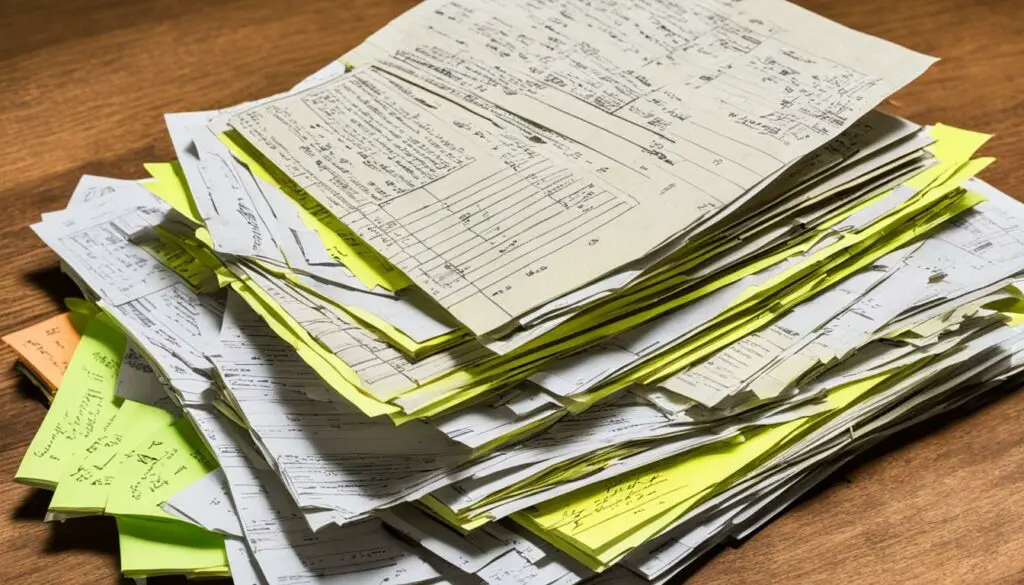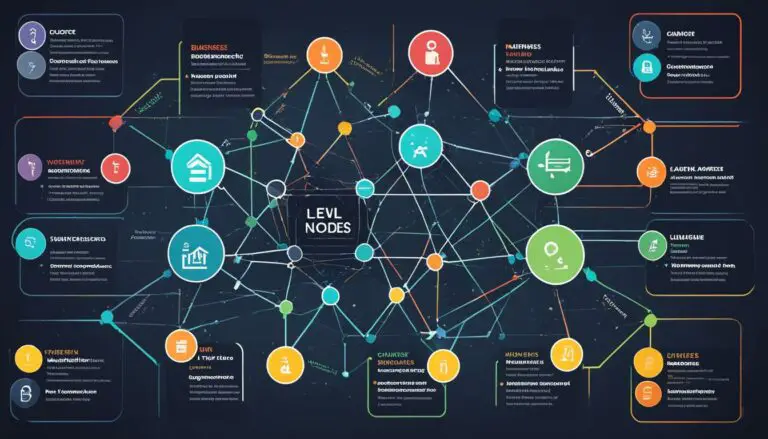A Level History Guide: Ace Your Exams!
A challenging academic program, History A Level demands profound knowledge of diverse subjects and thorough exam readiness.
This guide will cover essential aspects such as effective exam techniques, coursework mastery, and valuable resources to enhance your revision.
Preparing for A-level history exams can be challenging, but you can conquer this subject with the right approach.
Let’s dive into maximizing your revision with effective resources, developing the proper exam techniques, mastering coursework, and understanding the breadth and depth of A-level history topics.
Maximizing A-Level History Revision with Effective Resources
Utilizing Free Online Resources and Study Packs
Online resources have become invaluable tools for A-level history students looking to expand their knowledge and strengthen their understanding of key topics.
Several reputable websites provide comprehensive study materials, including lecture notes, practice questions, and revision guides.
Furthermore, study packs explicitly developed for A-level history offer a concise and organized approach to revision.
These packs often contain condensed notes, visual aids, and exam-style questions to help students effectively review the content and identify areas for improvement.
Engaging with Multimedia Learning: Podcasts and Flashcards
Podcasts are widely embraced for their convenience and engaging format in the realm of learning. Many education-focused podcasts cover A-Level History topics in a conversational and informative manner, making complex historical events more straightforward to understand and remember.
Flashcards are another valuable resource for A-Level History revision. They allow students to condense important information onto small, easily digestible cards, enabling them to review key facts and concepts anytime and anywhere.
Flashcards can be especially effective for memorizing dates, significant events, and key historical individuals.
🌟 Hey Students! 🚀 Ready for the ultimate experience? Join us on Studentsinside.com's Facebook, YouTube, WhatsApp, and LinkedIn. Click now for tips, fun, and success vibes! 🌈✨ #StudentLife #JoinUs
Exploring Comprehensive Revision Sites by Experienced Educators
Comprehensive revision sites created by experienced educators offer a holistic approach to A-level history revision.
These sites often provide a wide range of resources, including in-depth study guides, topic summaries, essay-writing tips, and practice exams.
| Resource | Benefits |
|---|---|
| Free online resources | – Access to a variety of study materials – Convenience of online learning – Cost-effective |
| Study packs | – Condensed notes for efficient revision – Exam-style questions for practice – Visual aids for better understanding |
| Podcasts | – Engaging and informative – Easy accessibility – Covers a wide range of topics |
| Flashcards | – Portable and convenient – Perfect for memorization – Can be used for self-testing |
| Comprehensive revision sites | – In-depth study guides – Essay writing tips – Practice exams for assessment |
Developing the Right Exam Technique for History A-Level Success
Here are some tips and strategies that can help students maximize their potential and improve their exam performance:
Time management: Time management is essential for history exams. Assign a fixed time for each question and adhere to it. Prioritize questions according to their marks and difficulty to guarantee sufficient time for addressing all questions with the deserved focus.
Understanding question requirements: Carefully read and analyze each question to understand its requirements. Pay attention to keywords, such as “analyze,” “evaluate,” or “compare and contrast,” as they indicate the type of response expected. Make sure to address all aspects of the question in your answer.
Structuring answers: Developing a clear and organized structure for your answers is essential. Start with an introduction that briefly overviews your argument or analysis. Follow it up with well-structured paragraphs that support your main points using evidence and examples. Conclude your answer by summarizing your main arguments and reiterating your overall viewpoint.

Essential Strategies for Mastering A-Level History Coursework
Delving into Detailed Topics with Structured Study Guides
One of the key strategies for effectively mastering A-level history coursework is to leverage structured study guides. These guides provide comprehensive overviews of historical topics, allowing students to delve deeply into specific areas of study.
With the aid of structured study guides, students can break down the coursework into manageable sections, ensuring a systematic and thorough approach to learning.
These guides often include outlines, summaries, key points, and suggested readings to facilitate comprehension and retention of essential historical knowledge.
Employing Past Papers for Practical Application of Knowledge
In addition to structured study guides, employing past papers is an invaluable strategy for mastering A-Level History coursework. Past papers provide a practical application of knowledge, allowing students to familiarize themselves with the format and requirements of actual exam questions.
This practical experience enables students to polish their historical analysis and critical evaluation skills, ensuring they are well-prepared for the coursework assignments and exams.
Furthermore, reviewing and analyzing past papers can provide valuable insights into common themes, recurring questions, and historical trends.
Incorporating past papers into their study routine allows A-level history students to bridge the gap between theoretical knowledge and practical application, ultimately enhancing their coursework performance and overall understanding of the subject.

| Benefits of Structured Study Guides | Benefits of Employing Past Papers |
|---|---|
| 1. Organized presentation of historical topics | 1. Practical application of knowledge |
| 2. Facilitates deep understanding and analysis | 2. Assess understanding and identify areas for improvement |
| 3. Develop critical thinking skills | 3. Practice time management and essay writing |
| 4. Enables systematic and thorough learning | 4. Identify patterns and prioritize revision |
A Level History Topics: Understanding the Breadth and Depth
In A Level History, students are exposed to various topics that span diverse historical periods and themes.
Navigating Through Diverse Historical Periods and Themes
One of the key challenges for A-Level History students is the extensive coverage of historical periods and themes. From ancient civilizations to modern revolutions, the syllabus encompasses a vast array of topics that can be overwhelming.
However, by organizing their study plan and prioritizing key periods and themes, students can effectively navigate the content and understand each era better.
To help with this effort, students can establish a study schedule that divides the syllabus into manageable sections.
Additionally, utilizing study resources such as textbooks, online articles, and academic journals can provide valuable context and insights into specific periods or themes.
Relating A Level History Syllabus Topics to Historical Analysis
Students need to grasp how A-level history topics link to the bigger picture of historical analysis. This helps them think critically, analyze sources, and draw meaningful conclusions from past events.
Students should approach each topic to establish this connection, focusing on key historical concepts and methodologies.
Additionally, engaging in discussions and debates with fellow students or participating in history-related workshops can foster a critical analysis of the syllabus topics.
Prepping for the A Level History Exam: Tips and Techniques
To excel in your A-Level History exam, it’s crucial to have effective preparation strategies in place.
Time Management and Structured Writing for Source-Based Questions
Time management is key when tackling source-based questions in your A-level history exam. Allocate specific time for each question, ensuring you have enough time to analyze and interpret the sources effectively. Engage in timed exercises to enhance both your speed and accuracy.
In addition to time management, structured writing is essential for effectively answering source-based questions. Begin by carefully examining the sources and identifying their main arguments.
Organize your thoughts and arguments coherently, utilizing clear topic sentences and supporting evidence from the sources. This will showcase your analytical skills and help you earn valuable marks.
Implementing Study Tips from Top Students to Tackle Exams Confidently
One of the best ways to boost your exam performance is to learn from successful students who have already excelled in their A-Level History exams.
Seek out study tips from top performers, such as creating concise revision notes, utilizing mnemonic devices for remembering key facts, and actively participating in group discussions or study groups.
Incorporating these study techniques into your routine will help you approach your exams with confidence and composure.
FAQ
What topics are covered in the A-Level History guide?
The A Level History guide covers various historical topics, including diverse historical periods and themes. It aims to provide a comprehensive understanding of the subject matter and enhance students’ ability to analyze historical events critically.
How can students enhance their A-Level History revision?
Students can enhance their A-Level History revision by utilizing various resources. These include free online resources, study packs, podcasts, flashcards, and revision sites created by experienced educators. Engaging with these resources can help students effectively review and reinforce their knowledge.
What exam techniques are essential for success in A-Level History exams?
Developing the proper exam technique is crucial for success in A-Level History exams. Effective exam preparation includes strategies such as time management, understanding question requirements, and structuring answers. These techniques can help students improve their exam performance and maximize their potential.
How can students excel in A-Level History coursework?
To excel in A-Level History coursework, students should employ essential strategies. This includes utilizing structured study guides to delve into detailed topics and employing past papers for the practical application of knowledge. These strategies can help students build a strong foundation in historical analysis and achieve excellent coursework results.
How can students navigate the breadth and depth of A-Level History topics?
Navigating through A-Level History topics can be facilitated by understanding the connections between syllabus topics and historical analysis. This allows students to explore diverse historical periods and themes while comprehending the significance of each topic. It enhances students’ ability to analyze and evaluate historical events critically.
What tips and techniques can help students prepare for the A-Level History exam?
Prepping for the A-Level History exam requires effective strategies. These include time management techniques, structured writing approaches for source-based questions, and implementing study tips from top-performing students.








